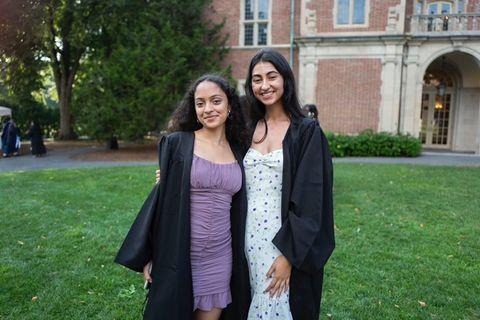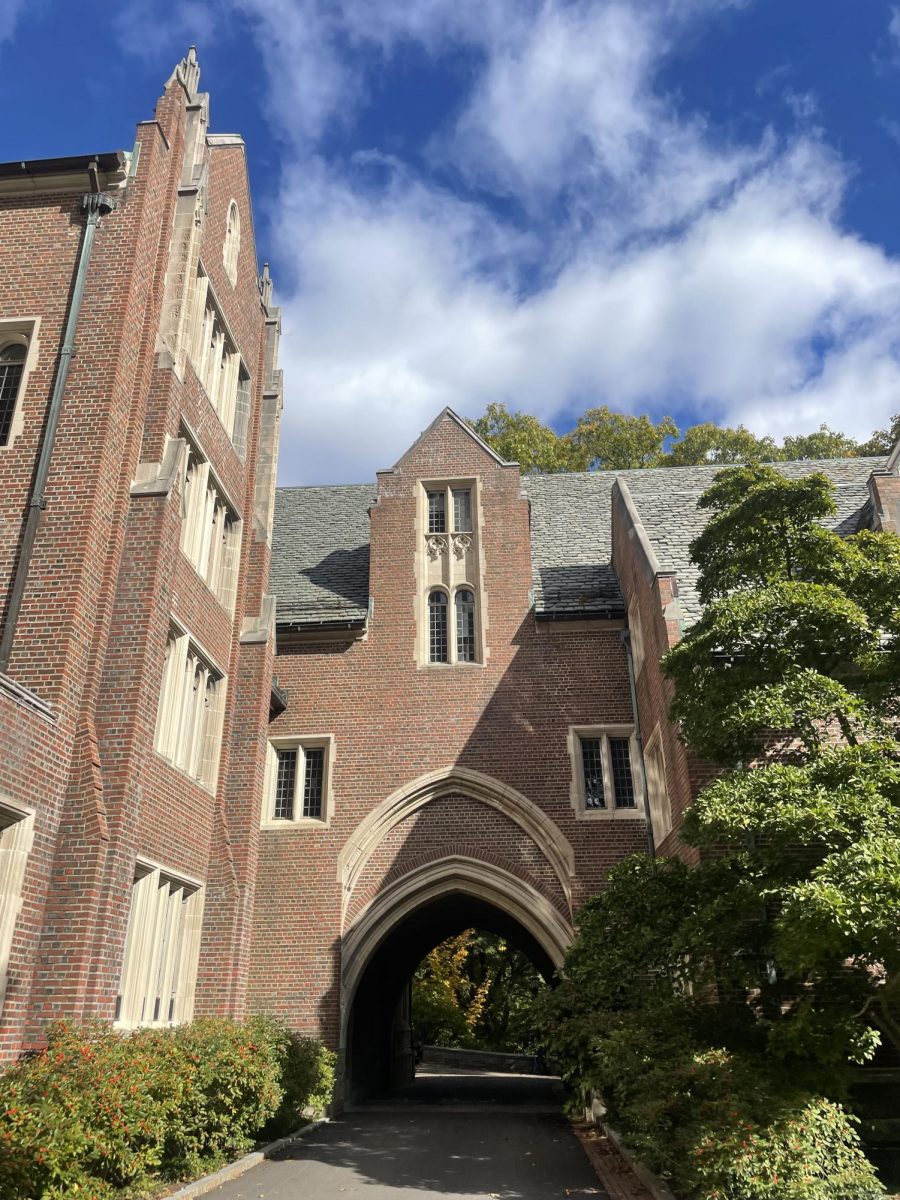As an Afghan American, Neha Lund ’22 was disappointed by the Wellesley administration’s silence on the situation in Afghanistan, especially after the Taliban takeover of Kabul on Aug. 15, 2021. In the aftermath of the withdrawal of US troops from the country, Afghanistan became the center of the political conversation on social media, with many Wellesley students and alums circulating information on Facebook and Instagram about fundraisers for refugees or fellow Afghan sibs.
“I wish that the institution was doing more advocacy and being at least somewhat outspoken,” Lund said. “Considering the power of the Wellesley alumnae network [with] people like Madeleine Albright ’59 and Hillary Clinton ’69 and countless other political [and] diplomatic leaders, I really wish that Wellesley would step up and use their institutional influence to advocate for the safe evacuation of everyone who wants to get out of Afghanistan.”
Lund and Sri Mylavarapu ’22 are the co-presidents of the Wellesley Association of South Asian Cultures (WASAC), and consider the inclusion of underrepresented South Asian communities, like the Afghan community, a top priority. Mylavarapu spoke of WASAC’s responsibility to work towards representing and advocating for all South Asian communities, especially the Afghan community.
“I think that Afghanistan is a region that has historically been underrepresented in South Asian organizations,” she said. “As WASAC, we have a responsibility to make sure that we are also supporting and amplifying Afghani causes, and not just focusing on the other regions in South Asia.”
The work towards inclusion of the Afghan community in WASAC is particularly important to Lund. It was one of the main goals of her and Mylavarapu’s candidacy.
“I would say definitely a goal for me and my co-president is to be as inclusive of all South Asian experiences represented at Wellesley as possible, with a special emphasis on those that have been traditionally underrepresented in spaces such as WASAC,” Lund said. “It’s definitely something that I value a lot, and that we’re constantly working towards changing.”
In 2020, to bring awareness to political issues in South Asian countries, WASAC began sending out a South Asian Political Newsletter to the WASAC community with major updates about politics and action items. Mylavarapu saw it as WASAC’s responsibility to keep their community aware of what was happening in South Asian countries.
“I think we as an organization really have the responsibility to promote this cause and give people resources to access, whether it’s donations or whether it’s reading straight from different Afghani sources, not necessarily [major] news or media outlets,” she said. “We’re really trying to emphasize that point [of] standing in solidarity first and then sharing resources to rally behind the cause and support in any way that we’re able to.”
One way the organization has done this is by sharing infographics and creating fundraisers. When an explosion rattled the halls of the Sayed Ul-Shuhada high school in Kabul, Afghanistan, on May 8, 2021, WASAC immediately began brainstorming ways they could inform and mobilize the Wellesley community. Two weeks after the tragedy, which likely targeted the female students, the WASAC Instagram account posted an infographic explaining the events in Kabul along with information about a fundraiser for Charmaghz, a Kabul-based NGO that turns old public buses into mobile libraries, providing children in Kabul access to education.
The organization was brought to the attention of Lund and Mylavarapu by an Afghan organizer who had direct ties to the high school. They decided to bolster awareness of this particular cause to the broader WASAC and Wellesley community. WASAC also put out a statement on Instagram on Sept. 6, 2021 with resources to support Afghan refugees.
“It was being organized by an Afghan organizer who had direct ties to the high school and the goal of the fundraiser was to facilitate re-entry for the students through programming and trauma counseling, considering that they lost nearly 100 members of their school community,” Lund said.
Although Lund was glad people were raising awareness and funds for people in Afghanistan, she believed the conversation was lacking in nuance.
“[Afghanistan] is not just an issue,” she said. “It’s a country and a society and a people.”
While Lund was also glad that countries were accepting more refugees from Afghanistan, she wished more people would acknowledge the grief and trauma that many refugees go through.
“Over time, there is the loss of cultural heritage and tradition and language and food and music and all of these things that comprise a culture that are not quantifiable [which] will impact lives and create a real sense of grief,” she said. “Instead, countries are being applauded for accepting a tiny amount of people, when they are often complicit in the situation that is unfolding before our eyes right now.”






